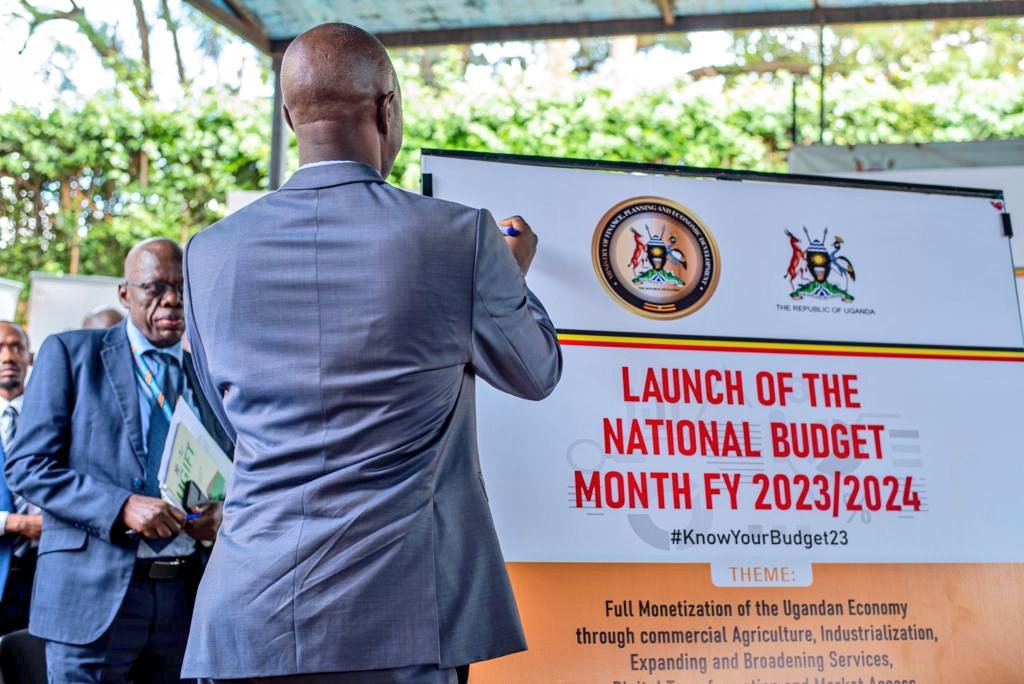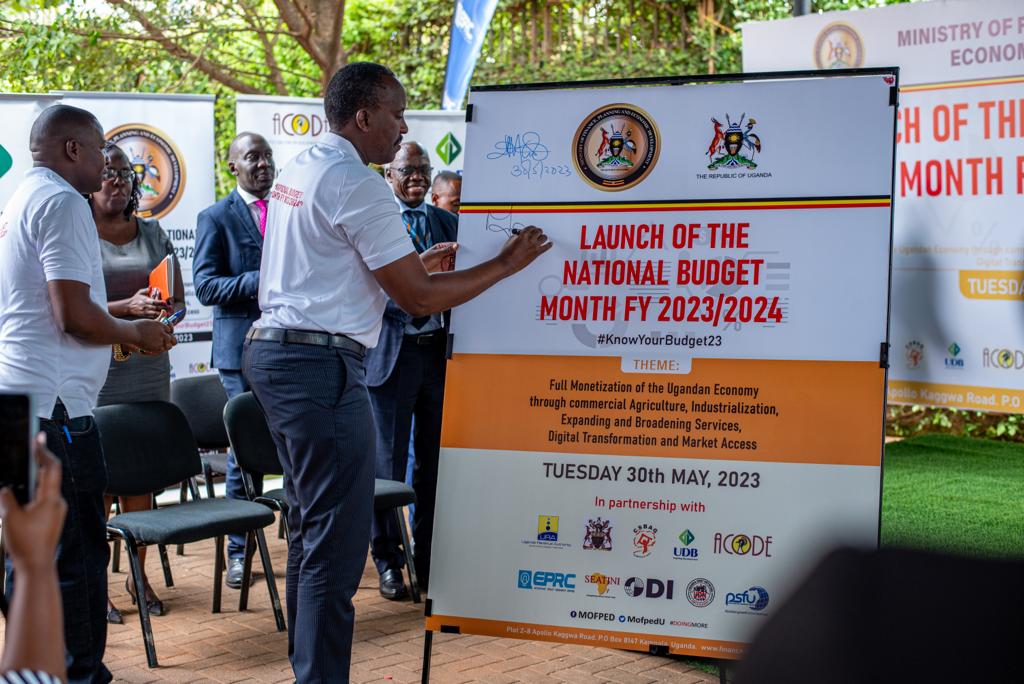Next financial year budget to prioritise wealth creation, full monetisation of economy
Government has said it expects Uganda’s Gross Domestic Product (GDP) to expand up to Shs 206.54 trillion by the end of financial year 2023/24.
This in turn is projected to grow the country’s GDP per capita to USD 1,182, up from USD 1,093 this financial year ending this June.
The remarks were made as the ministry of Finance, Planning and Economic Development together with civil society organisations launched the national budget month in the run-up to the next financial year budget that will be read out on Thursday, June 15, 2023.
The budget strategy for financial year 2023/24 is under the theme “Full monetisation of Uganda’s economy through commercial agriculture, industrialisation, expanding and broadening services, digital transformation and market access”.
According to the Permanent Secretary Ministry of Finance and Secretary to the Treasury Ramathan Ggoobi, the Shs 52.7 trillion budget is aimed at wealth creation and full monetization of the economy.

“Uganda’s economy has continued to recover; GDP growth for the year ending on 30th June 2023 is projected at 5.5 percent compared to 4.7 percent last financial year 2021/22,”said Ggoobi.
Next financial year 2023/2024, economic growth is projected to reach 6% and average 7% over the medium term, on account of increased oil and gas activities, increased production arising from the implementation of the Parish Development Model (PDM), regional trade and improved global conditions.
“Inflation is reducing steadily thanks to our well-coordinated fiscal and monetary policies. Headline inflation reduced to 8% last month and it is expected to further decline this month,”he said.
He said this implies that the cost of living will soon reduce back to pre pandemic levels affordable by a median Uganda.
Ggoobi called upon Ugandans to participate in the budget month activities in order to appreciate the opportunities available and the government priorities in the budget.
This, he said, will strengthen the collaboration between the citizens and the government towards improved accountability for public resources and better service delivery.
The goal of the budget for finance year 2023/24 and over the medium term is to “accelerate inclusive and green socio-economic transformation by redirecting resources towards supporting and sustaining economic recovery, jobs and wealth creation”.
“Next year’s budget has prioritised effective implementation of the Parish Development Model (PDM) to lift more Ugandans out of the subsistence economy. It has also prioritised upgrading of our transport infrastructure by beginning the construction of the Standard Gauge Railway (SGR) and road maintenance,” said Ggoobi.
Priority has also been given to promoting use of small-scale solar powered irrigation to adapt ourselves to climate change.
Other key priority areas that the budget will focus on are: building infrastructure in industrial parks (connecting them to electricity, water, paved roads, ICT and other infrastructure); investment in oil and gas to start production on schedule, investment in tourism promotion and development to market among others.
The biggest portion of next financial year's budget is expected to be from domestic revenue, grants and loans.
The Commissioner General at Uganda Revenue Authority (URA) John Musinguzi said the taxman is expected to collect over Shs 29.3 trillion in financial year 2023/24, an increment of over Shs 3.7 trillion from the current year’s target.

“We, therefore, call upon all Ugandans to support URA in carrying out this task for our nation’s development,” he said.
He said URA, together with partners, will conduct post budget engagements held in different locations countrywide to educate the citizens and business people about the implications of any tax policy decisions communicated in the budget.
“It is important to note that through various mechanisms, URA has grown the taxpayer register from 1,594,116 to 3,067,983 taxpayers in less than three years. It is, however, essential to note that the register is only 34% of the 9 million Ugandans eligible to pay tax,” he noted.













